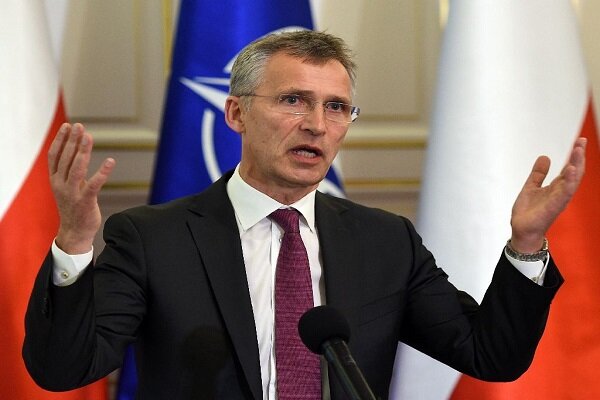
Stoltenberg made the remarks in an interview with the PBS News Hour on Tuesday before he meets with US President Joe Biden.
President Biden and the outgoing NATO secretary general are expected to discuss the ongoing Ukraine war, efforts to persuade NATO member Turkey to back off blocking Sweden from joining the alliance and more.
In the Tuesday interview, Stoltenberg reaffirmed again that all member countries have agreed that Ukraine will eventually join the transatlantic military alliance once the war is over.
“I believe it’s not possible to give precise dates when we are in the midst of a war,” he said, adding, “And I think that all allies will also very clearly express that the most urgent task now is to ensure that Ukraine prevails as a sovereign, independent nation, if we need to provide more military support, because, unless Ukraine prevails, then there’s no membership to be discussed at all…”
The Nato chief went on to justify the lack of decision on Ukraine’s membership in the Western military alliance saying, “I also expect that we will agree on a multiyear plan, program for how to ensure the transition of the Ukrainian armed forces from the old Soviet standards, doctrines to modern NATO standards and doctrines, and to ensure that they are fully interoperable with NATO and that will also move them closer to membership.”
He expressed uncertainty that Ukraine will win the war despite all Western support, saying “..It is encouraging to see that the Ukrainians are making progress, but, of course, wars are unpredictable. So it’s not possible now to say when and how the war will end and, of course, to predict the exact outcome of this offensive.”
Stoltenberg further tried to justify Nato’s expansion to East Asia, saying that “China and Russia are coming closer and closer, they just conducted a big naval exercise together. We see more Russian and Chinese joint naval and air patrols. This makes it just more important that NATO’s alliance also addresses the challenges to our security posed by China and that we — we stand together in addressing also the security consequences of China.”
KR/PR